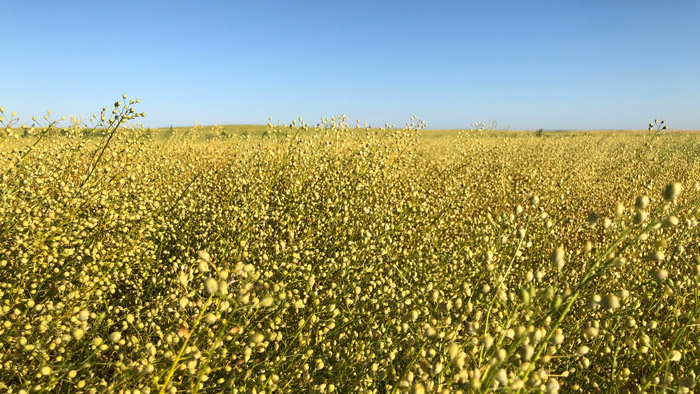
ExxonMobil to purchase renewable diesel from converted CA oil refinery
ExxonMobil has signed an agreement with Global Clean Energy Holdings to purchase 2.5 million barrels of renewable diesel per year for five years from a converted California refinery starting in 2022.
The renewable diesel will be sourced from a refinery acquired by Global Clean Energy in Bakersfield, California, which is being re-purposed to produce renewable diesel from Global Clean Energy’s patented varieties of camelina, a fallow land crop that does not displace food crops, and other non-petroleum feedstocks. Following scheduled production startup in 2022, ExxonMobil plans to distribute the renewable diesel within California and potentially to other domestic and international markets.
“Our agreement with Global Clean Energy builds on ExxonMobil’s longstanding efforts to develop and offer products that help meet society’s energy needs while reducing environmental impacts,” said Bryan Milton, president of ExxonMobil Fuels and Lubricants Company. “Chemically similar to petroleum-based diesel, renewable diesel can be readily blended for use in engines on the market today.”
“Our relationship with ExxonMobil is a perfect fit for Global Clean Energy and the Bakersfield biorefinery because it leverages ExxonMobil’s scale and unrivaled market perspective to unlock value for both companies,” said Richard Palmer, CEO of Global Clean Energy Holdings. “By combining upstream feedstock supply and downstream production, we are moving toward the fully integrated production model pioneered by ExxonMobil.”
In addition to camelina, various non-petroleum feedstocks, including used cooking oil, soybean oil, distillers’ corn oil and other renewable sources will be refined to produce the renewable diesel.
California’s Low Carbon Fuel Standard (LCFS) is designed to reduce GHG emissions in the transportation sector, which is responsible for about 50% of GHG emissions (including industrial sector emissions from refining and crude production), 80% of ozone‐forming gas emissions, and more than 95% of diesel particulate matter. It is a key part of a comprehensive set of programs in California to reduce emissions from the transportation sector, including the Cap and Trade Program, Advanced Clean Cars Program, and SB 375. The LCFS is also a key program to achieve the governor’s goal of cutting petroleum use in half by 2030.
Based on analysis of California Air Resources Board (CARB) data, renewable diesel from various non-petroleum feedstocks can provide life-cycle greenhouse gas emissions reductions of approximately 40% to 80% compared to petroleum-based diesel fuel.
Global Clean Energy Holdings is a leading developer of sustainable, non-food energy crops for use in biofuels. GCEH’s wholly owned subsidiary, Sustainable Oils, is the leading developer of camelina, a fast-growing, low input, dryland farmed rotation crop. Through a financing partnership with Orion Energy Partners, GCM Grosvenor and Voya Investment Management, Global Clean Energy expanded into downstream production with the acquisition of the Bakersfield facility. Once production commences in 2022, the Bakersfield biorefinery will be the only integrated farm-to-tank renewable diesel producer of its kind, processing both camelina—a proprietary non-food, ultra-low carbon intensity and purpose-grown feedstock—as well as traditional biofuel feedstocks such as plant oils and waste products. To learn more, visit gceholdings.com.













